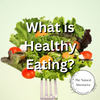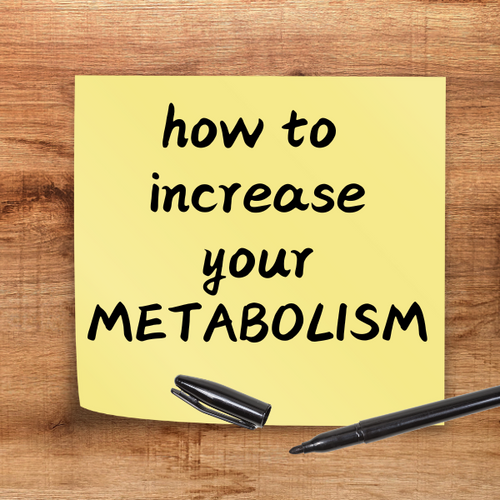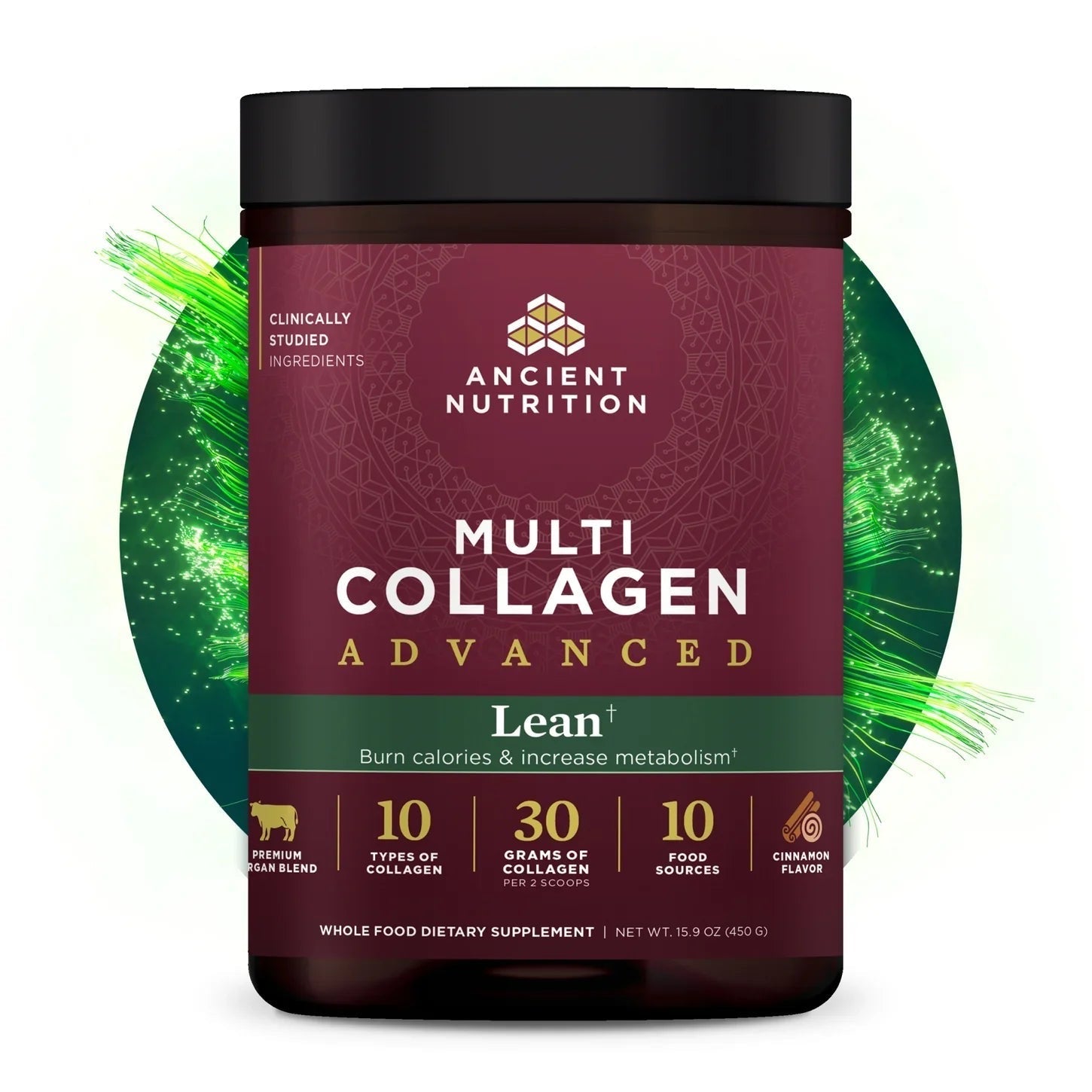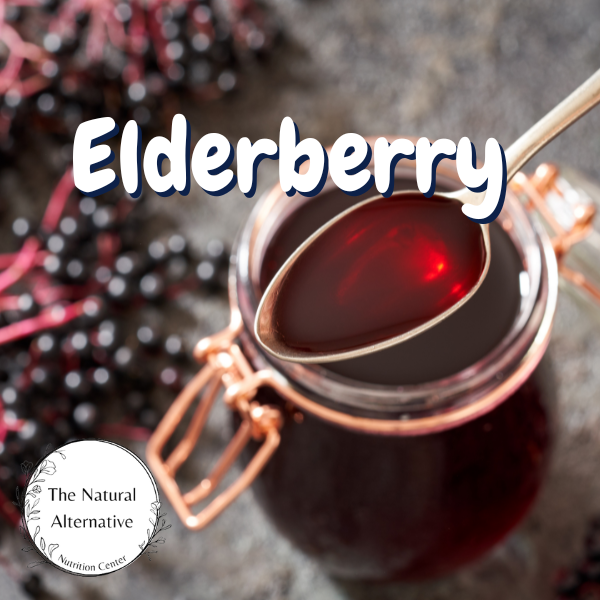
What Defines Healthy Eating?
, 8 min reading time

, 8 min reading time
The Natural Alternative Nutrition Center
At its core, healthy eating is fundamentally about achieving balance and embracing variety in your diet. This approach emphasizes the importance of consuming a diverse range of nutrient-dense foods, which are rich in essential vitamins, minerals, and other beneficial compounds. By focusing on the right portions, you ensure that your body receives all the nutrients it needs to function optimally and maintain overall health.
Macronutrients—carbohydrates, proteins, and fats—play crucial roles in your body's energy production and overall functioning. Carbohydrates serve as the primary energy source, fueling everything from daily activities to intense workouts. Proteins are vital for building and repairing tissues, supporting immune function, and producing enzymes and hormones. Healthy fats, meanwhile, are essential for brain health, hormone production, and the absorption of certain vitamins.
On the other hand, micronutrients, which include vitamins and minerals, are equally important for maintaining health. They support a range of bodily functions, from bolstering the immune system to promoting strong bones and facilitating energy metabolism. A well-rounded diet rich in fruits, vegetables, whole grains, lean proteins, and healthy fats ensures that you are not only meeting your energy needs but also providing your body with the tools it requires to thrive.
Importantly, healthy eating isn’t a strict diet or the deprivation of your favorite foods. Rather, it's about cultivating sustainable eating habits that nourish your body while allowing for flexibility and enjoyment. This approach encourages you to be mindful of what you eat and to make choices that align with your health goals, without feeling restricted.
Think of healthy eating as a long-term investment in your well-being—a way to fuel yourself for the long haul rather than seeking a quick fix. By prioritizing balance and variety, you can create a lifestyle that supports your health and vitality, making it easier to enjoy food and social occasions without guilt. This mindset fosters a positive relationship with food, encouraging you to savor meals and appreciate the nourishment they provide. Ultimately, healthy eating is about finding what works best for you and your unique needs, leading to a more satisfying and fulfilling life.
Eating a balanced diet filled with fruits, vegetables, whole grains, and lean proteins can significantly reduce the risk of cardiovascular disease. These nutrient-rich foods provide essential vitamins, minerals, and antioxidants that support heart health. Fruits and vegetables, in particular, are high in fiber and low in calories, making them excellent choices for maintaining a healthy weight—an important factor in cardiovascular health.
Whole grains, such as brown rice, quinoa, and whole wheat bread, are rich in fiber and help regulate cholesterol levels by reducing LDL (bad cholesterol) and increasing HDL (good cholesterol). This balance is crucial for preventing plaque buildup in the arteries, which can lead to heart disease.
Focusing on nutrient-dense foods and controlling portion sizes can significantly help you maintain a healthy weight over time. Nutrient-dense foods, such as fruits, vegetables, whole grains, lean proteins, and healthy fats, provide a wealth of vitamins, minerals, and other essential nutrients without excessive calories. By prioritizing these foods, you not only nourish your body but also increase your satiety, helping you feel fuller for longer periods.
When you choose nutrient-dense options, you reduce the likelihood of consuming empty calories found in processed and sugary foods, which can lead to weight gain and poor health. Additionally, being mindful of portion sizes plays a crucial role in weight management. It allows you to enjoy a variety of foods while preventing overeating.
A well-balanced diet supplies your body with the essential fuel it needs to operate at its best. Meals that include whole grains, lean proteins, and healthy fats offer consistent, sustained energy throughout the day, in contrast to the energy spikes and crashes often associated with processed foods and sugary snacks.
Support a Stronger Immune System
A diet rich in vitamins, minerals, and antioxidants plays a vital role in strengthening the immune system, enabling the body to combat infections and illnesses more effectively. These nutrients work synergistically to enhance immune function, promoting overall health and resilience.
Vitamins such as vitamin C are well-known for their immune-boosting properties. This powerful antioxidant helps stimulate the production of white blood cells, which are crucial for defending against pathogens. Foods high in vitamin C, such as citrus fruits, bell peppers, and broccoli, can significantly contribute to your immune health.
Minerals like zinc and selenium are also essential for immune support. Zinc is involved in numerous immune system functions, including the development and activation of T-lymphocytes, a type of white blood cell. Good sources of zinc include nuts, seeds, legumes, and whole grains. Selenium, found in foods like Brazil nuts, fish, and eggs, has antioxidant properties that help protect cells from damage and enhance the body’s immune response.
Incorporating a variety of these nutrient-dense foods into your daily diet not only fortifies your immune system but also promotes overall health, helping your body better resist infections and recover more swiftly when illness strikes.
As we age, our bones and muscles naturally weaken, making us more susceptible to conditions like osteoporosis and muscle loss. However, adopting a diet rich in calcium, vitamin D, and protein can play a crucial role in maintaining strength and promoting overall skeletal and muscular health.
Calcium is essential for building and maintaining strong bones. It helps prevent bone density loss, which is critical in reducing the risk of fractures and osteoporosis. Foods such as dairy products, leafy green vegetables, and fortified plant-based alternatives provide ample calcium, ensuring your bones receive the nutrients they need to remain robust.
Vitamin D is equally important, as it aids in the absorption of calcium and supports bone health. Sunlight exposure is a natural source of vitamin D, but it can also be found in fatty fish, egg yolks, and fortified foods. Adequate levels of vitamin D are essential for maintaining strong bones and preventing age-related declines in bone density.
Additionally, protein is vital for preserving muscle mass as we age. It helps repair and build muscle tissues, contributing to strength and mobility. Including lean meats, poultry, fish, legumes, and nuts in your diet can provide the necessary protein to support muscle maintenance.
By prioritizing these nutrients, you can help combat the natural weakening of bones and muscles, enhancing your overall quality of life and reducing the risk of age-related complication
What you eat has a significant impact on the health and appearance of your skin and hair. The nutrients you consume directly influence skin vitality and hair strength, making a balanced diet essential for enhancing your natural beauty.
Vitamins A, C, and E are particularly important for skin health. Vitamin A plays a crucial role in cell production and repair, promoting a youthful complexion. It helps maintain skin elasticity and can reduce the appearance of fine lines and wrinkles. Foods rich in vitamin A, such as sweet potatoes, carrots, and dark leafy greens, can contribute to a radiant skin tone.
Vitamin C is another powerhouse nutrient that aids in collagen production, a protein vital for skin structure and firmness. It also acts as an antioxidant, protecting the skin from damage caused by free radicals and environmental stressors. Citrus fruits, strawberries, and bell peppers are excellent sources of vitamin C, helping to promote a brighter and more resilient complexion.
Vitamin E is known for its skin-repairing properties and helps protect against oxidative stress. It nourishes the skin, enhances moisture retention, and can improve overall skin texture. Nuts, seeds, and avocados are rich in vitamin E and healthy fats, which are essential for maintaining skin hydration and elasticity.
Healthy fats, such as those found in avocados, olive oil, and fatty fish, are crucial for both skin and hair health. These fats help maintain the skin's natural barrier, keeping it hydrated and reducing the likelihood of dryness and irritation. Additionally, they nourish hair follicles, promoting shinier, stronger hair and reducing breakage.
Incorporating these vital nutrients into your diet can significantly improve skin elasticity, reduce the appearance of wrinkles, and strengthen your hair, contributing to a healthier and more vibrant appearance overall.
Healthy eating brings a multitude of long-term benefits, including enhanced heart health, improved mental clarity, and effective weight management. Shifting to a balanced, nutrient-rich diet is a gradual process; however, by making small, consistent changes, you’ll start to notice positive effects on your energy levels, mood, and overall well-being.
Focusing on whole foods, practicing mindful eating, and tuning into your body’s nutritional needs will enable you to sustain these healthy habits for the long term. Although the time it takes to see results can vary from person to person, the lasting benefits of a healthy diet make the effort worthwhile, paving the way for a healthier, more vibrant future.
If you are interested in learning more, stop by the store or give us a call today! We also serve nationwide online! Stay up to date with our sales, promotions and events by joining our mailing list!
*It is important to check with a healthcare professional before starting or stopping any medications, vitamins or supplements.



